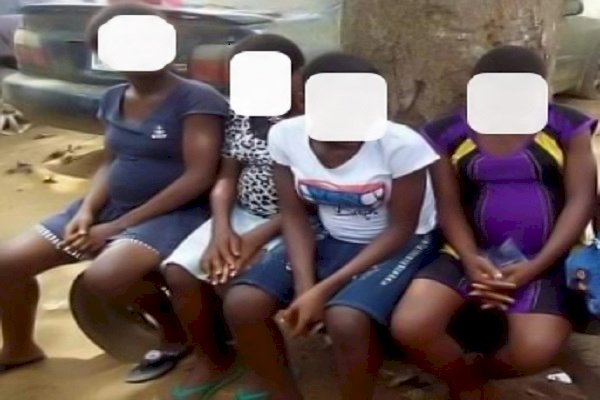Teenage Pregnancy Reaches An All-Time High In Bono, Bono East And Ahafo Regions

The Bono, Bono East, and Ahafo regions recorded 64,000 teenage pregnancy cases from 2016 to 2020. During the four years, the Bono East region also recorded 28,284 teenage pregnancies. The Bono region came second with 22,944 teenage pregnancy cases. However, the Ahafo region recorded the lowest teenage pregnancy
cases of 12,861 within the same period. At the national level, about 555,575 teenagers aged 10 to 19 got pregnant between 2016 and 2020. Within four years, 13,444 teenagers between the ages of 10 and 14 got pregnant, while some 542,131 teenagers aged 15 to 19 years got pregnant. The Chief Executive Officer (CEO) of
Global Media Foundation, Raphael Godlove Ahenu, disclosed this at a media engagement in Sunyani when they released their 2022 report on the teenage pregnancy situation in the regions. The report titled the State of teenage pregnancy in the Bono, Bono East and Ahafo regions identified high levels of poverty, early
marriage, gender discrimination based on historic unequal gender roles, the lack of sexual and reproductive health education, lack of access to contraceptive use and discrimination against reproductive rights for young women as some of the factors contributing to the high levels of adolescent pregnancy. According to Mr Ahenu,
understanding both the individual and societal causes and effects of teenage pregnancy could effectively deal with the situation in Ghana. He said research shows direct links between the levels of education and the age of the first sexual intercourse experience. The higher the educational level of the adolescent, the less likely they
are to engage in sexual intercourse at an early age,” he added. He therefore suggested that addressing socio-cultural issues related to teenage pregnancy, developing reintegration services for young mothers in education and social sectors, and attempts to engage young boys in adolescent sexual health programmes and services
are crucial. He said to address the high rate of teenage pregnancy in Ghana, the Ministry of Gender, Children and Social Protection, Ghana Health Service, and Ministry of Health must convene a national stakeholders meeting. The meeting, he added, will assess the current levels, and conduct a situation analysis and strategies for sustained national sensitisation.







